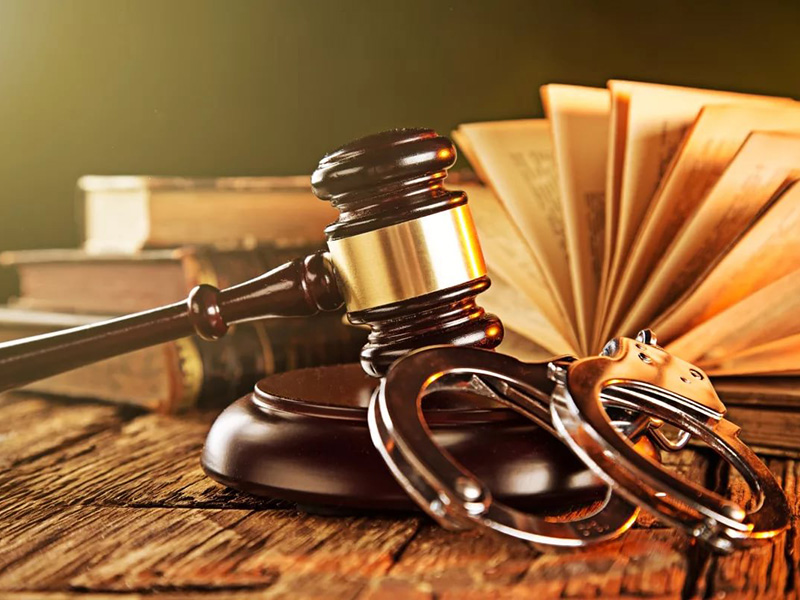I am studying in the third year of the State University of Economics and Technology.I specialize in contractual, economic and corporate law, in particular, I provide consultations and write articles.
In general, the indictment is an extremely important procedural decision, which summarizes the stage of the pre-trial investigation and it is with its help that the prosecutor will bring charges against the suspect.
Along with this, the indictment contains all the circumstances that have legal significance for criminal proceedings and the qualification of the committed act
Features of the return of the indictment:
- Considering the exceptional significance of the indictment in criminal proceedings, its return is no less important for the further course of proceedings.
- In general, any procedural decision must meet the requirements of the law in order to gain its legal force - an indictment is no exception.
- According to Art. 291 of the Code of Criminal Procedure, the investigator is authorized to draw up the act, who, after drawing it up, must necessarily approve the procedural decision by contacting the prosecutor, or the prosecutor himself, if, for example, he does not agree with the act drawn up by the investigator.
- Along with this, the content of the indictment is regulated in detail in Part 2 of Article 291 of the Code of Civil Procedure and when drafting it, authorized persons must adhere to the provisions set forth in this rule.
In general, the indictment must contain:
- the name and registration number of the proceedings,
- information about the accused,
- the victim,
- the whistleblower,
- information about the investigator,
- the prosecutor,
- the established factual circumstances must be described,
- the legal qualification of the act provided, as well as a list of mitigating or, on the contrary, aggravating circumstances etc.
The list of documents specified in Part 4 of Article 1 is attached to the indictment. 291 of the CCP. The drawn up act must be signed by the investigator and the prosecutor, or only by the prosecutor (if the indictment was drawn up by him alone).
At the stage of familiarization with this procedural decision by the defense side, numerous errors may be discovered both regarding the content of the act and other aspects that affect its legal meaning.
In the presence of the following reasons, the defense party may request the return of the indictment to the prosecutor:
1. Procedural legislation establishes a mandatory norm according to which, simultaneously with the submission of the indictment to the court, the prosecutor must provide a copy of this procedural decision to the suspect, the defense attorney, or the legal representative. A copy is provided upon receipt. Non-observance of this norm, or improper execution of the procedure entails the existence of grounds for the return of the submitted indictment.
2. Based on the above-mentioned requirements for drawing up an indictment, the stage of signing and approval is of exceptional importance, because it will give the procedural decision the status of an official document. The absence of a signature, or approval, sealing or signature of the act by an unauthorized person - all this will cause the drawn-up act to be inconsistent with the legislation and, accordingly, will serve as a basis for return.
3. In the document itself, mistakes may be made regarding the establishment of the data of the parties, their procedural statute, and the atom should also pay attention to this.
4. The basis will also be insufficient specification of the crime, because when drawing up the indictment, the authorized person must describe in detail the event of the offense, that is, the time, place and other circumstances that are properly established. If there is no such specification, it is possible to claim that there is a reason for returning the act.
The procedure for returning the indictment and its consequences:
- Active actions related to the return of the indictment, implemented by a criminal lawyer at the stage of preparatory proceedings, are important for the further progress of the case.
- If the above-mentioned reasons are present, the lawyer, in order to protect his client, has the right to submit a petition for the return of the indictment. Such a petition is submitted to the court during the preparatory proceedings in writing.
- The court, in its turn, makes a corresponding decision, which can be appealed by the prosecutor in the future.
- As for the legal consequences of the return of the act, this court decision returns the proceedings to the stage of completion of the pre-trial investigation and provides an opportunity to correct the mistakes made.
- It is worth noting that in the case of a return, there will be no question of granting the right to the investigator, the prosecutor to conduct new investigative actions, or otherwise to implement an additional investigation within the framework of criminal proceedings.
Consultation of a criminal lawyer upon return of the indictment: evaluation
- After receiving the indictment, the criminal lawyer will help to conduct an analysis of the subject of compliance with all the requirements of the law.
- If violations are found in the act, submit a petition to the court to return it to the prosecutor. In general, a criminal lawyer is an extremely important participant in the proceedings, who will provide a comprehensive collection of the necessary evidence, conduct evaluation.
- Legal analysis of the situation, selection and implementation of reliable strategies for the defense of the suspect or the accused, convicted - there are also the main tasks of a lawyer.

































